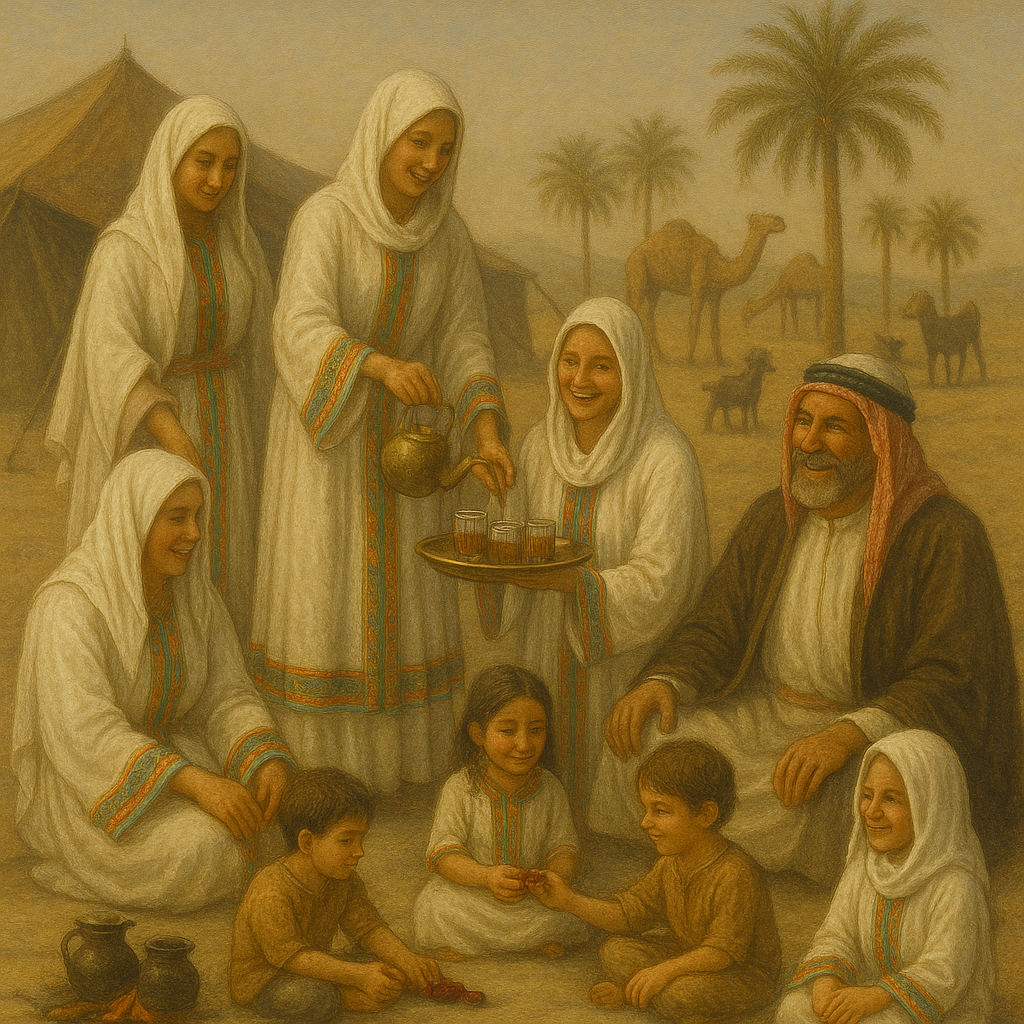Regarding sexual purity

This essay will almost certain offend most readers. With the coming of the Lord so soon, I have wondered about the utility in sharing this message. But it is a message the Lord wishes to be shared even now, at the end of the age.
I will start by stating this; in the beginning God made humanity--he made them male and female. He formed Adam, and then from Adam he created Eve. They were blessed--and commanded to be fruitful and multiply; and so they were--because here we are, almost 6000 years later--8 billion children of Adam and Eve.
They were made in a covenant of the flesh; with Eve coming from Adam and forever his; and he forever hers. Until death. For this reason men leave their fathers and mothers, and marry; so they can live in a covenant union that like Adam and Eve's can be blessed and fruitful. Human relationships are about communion in covenant purpose; stewarding God's planet and filling it with righteous children of God.
However since the fall of mankind to sin; humanity has elevated pleasure at the expense of responsibility and purpose--endless dating with sex but without marriage. It has corrupted marriage--extending it to homosexual relationships; it has subverted the nature of sexual identity--moving from birth assigned gender being the sole identifier of gender; and instead allowing people to select for themselves what they believe they are. Families have gone from being led by present fathers, to being led by single mothers. A total subversion of the human family and identity has taken place. Instead of the Church correctly teaching the truth WITHIN the Church; it has focused on identity wars OUTSIDE the church; ignoring the rot that has slowly taken root; pornography addictions, casual sex and dating, and adultery--all within the Church; and often involving Church leaders.
The Church has taken absurd positions on sexual morality outside of its walls, instead of discipling its congregants and giving the tools to maintain sexual purity. During the 90s it took the position that allowing homosexual marriage would open the door to polygamy--as if the two can even be compared. Homosexuality is explicitly called an abomination in scripture; whereas polygamy was regulated in the Torah. This sort of false equivalence has demonstrated one thing. Too many of the shepherds in the Church are ignorant of the teaching of Scripture and the priorities and heart of God. Prioritising faulty dogma over God's heart, his purposes and his Word. This treatise is written to correct that misunderstanding. The position taken is unorthodox--but it is the truth of the Word of God.
The Biblical Foundation of Sexual Morality and Its Divergence from Modern Practices
Introduction
This treatise examines the stark contrast between biblical sexual ethics and contemporary Western sexual norms. Taking the view that only what the Bible explicitly states represents divine instruction on sexual morality, this analysis demonstrates how modern sexual practices have departed significantly from scriptural teachings. Furthermore, it explores how New Testament sexual ethics are fundamentally rooted in Torah principles, and how these biblical sexual norms align with traditional practices across various historical cultures.
I. New Testament Sexual Ethics Grounded in Torah
The Jerusalem Council's Definition of Sexual Immorality
When the early church addressed how Gentile converts should relate to Jewish law, they made a critical judgment:
"For it has seemed good to the Holy Spirit and to us to lay on you no greater burden than these requirements: that you abstain from what has been sacrificed to idols, and from blood, and from what has been strangled, and from sexual immorality. If you keep yourselves from these, you will do well." (Acts 15:28-29, emphasis added)
The term "sexual immorality" (πορνεία/porneia) would have been understood by the apostles—all devout Jews—through the lens of Torah prohibitions. The Jerusalem Council did not redefine sexual ethics but rather affirmed that even as Gentiles were not required to keep the entire Mosaic Law, they were still bound by Torah's sexual ethics.
This understanding is reinforced by Paul's later writings, where he consistently refers back to Torah principles when addressing sexual immorality:
"Do you not know that the unrighteous will not inherit the kingdom of God? Do not be deceived: neither the sexually immoral, nor idolaters, nor adulterers, nor men who practice homosexuality, nor thieves, nor the greedy, nor drunkards, nor revilers, nor swindlers will inherit the kingdom of God." (1 Corinthians 6:9-10)
Here, Paul specifically mentions both "sexually immoral" (πόρνοι/pornoi) and "homosexuality" (ἀρσενοκοῖται/arsenokoitai)—a term derived directly from the Septuagint's Greek rendering of Leviticus 18:22 and 20:13, confirming that New Testament sexual ethics maintained Torah prohibitions.
Paul's Sexual Ethics Based on Torah
Throughout his epistles, Paul consistently grounded his teachings on sexual morality in Torah principles:
- Prohibition of Incest (1 Corinthians 5:1-5) When addressing a case of a man who had his father's wife, Paul condemned this relationship as sexual immorality that "is not tolerated even among pagans." This prohibition directly reflects Leviticus 18:8: "You shall not uncover the nakedness of your father's wife."
- Prohibition of Prostitution (1 Corinthians 6:15-16) Paul's argument against visiting prostitutes appeals to Genesis 2:24: "The two shall become one flesh." He applies the creation narrative's sexual ethics to prohibit non-covenantal sexual relations.
- Prohibition of Homosexual Practice (Romans 1:26-27) Paul's condemnation of same-sex relations directly parallels Leviticus 18:22 and 20:13, framing these acts as "contrary to nature" and a departure from God's created order.
Jesus Reinforces Torah Sexual Ethics
Jesus himself affirmed and intensified Torah sexual ethics:
Affirmation of Marriage Based on Creation (Matthew 19:4-6)
"Have you not read that he who created them from the beginning made them male and female, and said, 'Therefore a man shall leave his father and his mother and hold fast to his wife, and the two shall become one flesh'? So they are no longer two but one flesh. What therefore God has joined together, let not man separate."
Strengthened Prohibition of Adultery (Matthew 5:27-28)
"You have heard that it was said, 'You shall not commit adultery.' But I say to you that everyone who looks at a woman with lustful intent has already committed adultery with her in his heart."
These teachings demonstrate that Jesus did not abolish Torah sexual ethics but rather affirmed and deepened them.
II. Cross-Cultural Alignment with Biblical Sexual Ethics
Universal Elements of Traditional Sexual Ethics
Many traditional cultures worldwide historically shared key aspects of biblical sexual ethics:
- Prohibition of Adultery Virtually all traditional societies condemned adultery (most especially for women), aligning with the biblical prohibition in Exodus 20:14 and Leviticus 20:10.
- Acceptance of Polygyny Like the Torah, many traditional cultures in Africa, the Middle East, and Asia permitted men to have multiple wives, often with similar regulations to protect inheritance rights.
- Bride Price Requirements The biblical practice of a man providing a bride price (Exodus 22:16-17) parallels traditional practices across Africa, the Middle East, and parts of Asia where men were required to provide compensation to the bride's family.
- Family Consent in Marriage The biblical pattern of family-arranged marriages (Genesis 24) with exceptions for widows or older women (as seen in Ruth) aligns with traditional practices across many cultures.
- Clear Gender Distinctions The biblical mandate for distinct gender roles and appearance (Deuteronomy 22:5; “A woman shall not wear a man's garment, nor shall a man put on a woman's cloak, for whoever does these things is an abomination to the LORD your God") has parallels in most traditional cultures, which maintained clear distinctions between male and female dress, behavior, and social roles.
African Traditional Practices
Many African traditional marriage systems closely parallel biblical practices:
- Polygyny was widely practiced and regulated
- Bride price (lobola/dowry) was standard practice
- Levirate marriage (similar to Deuteronomy 25:5-10) existed in various forms
- If brothers dwell together, and one of them dies and has no son, the wife of the dead man shall not be married outside the family to a stranger. Her husband's brother shall go in to her and take her as his wife and perform the duty of a husband's brother to her. 6 And the first son whom she bears shall succeed to the name of his dead brother, that his name may not be blotted out of Israel. (Deuteronomy 25:5-6)
- Family involvement in marriage arrangements was normative
- Clear gender distinctions were maintained
Middle Eastern Traditional Practices
Middle Eastern cultures maintained several practices documented in the Bible:
- Polygyny was permitted and regulated
- Bride price (mahr) was required for valid marriages
- Family honor was connected to female sexual purity
- Clear gender distinctions were strictly enforced
East Asian Traditional Practices
Traditional Chinese and Japanese cultures also shared elements with biblical sexual ethics:
- Ancestor veneration emphasized the importance of legitimate offspring
- Family consent was required for marriages
- Clear gender distinctions were maintained in dress and social roles
- While polygyny took different forms (concubinage in China), multiple sexual partners for men within regulated structures was permitted
This widespread alignment does not validate biblical ethics (which stands on divine authority alone), but it does demonstrate that modern Western sexual norms—not biblical standards—are the historical anomaly.
III. The Scale of Deviation: Statistical Evidence
Abortion Statistics
Since the 1960s sexual revolution, abortion has become widespread, contradicting the biblical emphasis on procreation and protection of human life:
- Since 1973 (Roe v. Wade), there have been over 63 million abortions in the United States alone
- Worldwide, the Guttmacher Institute estimates that 73.3 million abortions occur annually
- The cumulative global total of abortions since the 1960s exceeds 1.5 billion souls
Single Motherhood
The rise in single motherhood directly contradicts the biblical model of children being raised in intact families:
- In 1960, approximately 5% of births in the U.S. were to unmarried mothers
- By 2019, that figure had risen to 40%
- Among Black Americans, the rate of births to unmarried mothers increased from approximately 20% in 1960 to 70% by 2019
- The percentage of children living with a single parent has more than doubled since 1968
Divorce Rates
Despite Jesus' clear teaching on marriage permanence, divorce has become commonplace:
- In 1960, the divorce rate in America was 2.2 per 1,000 population
- This peaked at 5.3 per 1,000 in the early 1980s
- While slightly declined in recent years (to about 2.9 per 1,000), lifetime probability of divorce remains between 40-50%
- This contrasts sharply with Jesus' teaching: "What therefore God has joined together, let not man separate" (Matthew 19:6)
Premarital Sexual Activity
Premarital sex has shifted from stigmatized behavior to expected norm:
- In the early 1960s, surveys indicated approximately a third of American women had premarital sex by age 20
- By the 2010s, this had increased to approximately 75%
- Among men, the figures are consistently higher
- This directly contradicts the biblical expectation of virginity before marriage (Deuteronomy 22:13-21)
Dating vs. Courtship
The modern dating paradigm significantly differs from biblical courtship practices:
- Traditional courtship focused on marriage potential and typically occurred without sexual intimacy
- Contemporary dating often includes sexual intimacy without marriage commitment
- A 2015 study found that approximately 80% of unmarried evangelical young adults (18-29) had engaged in sex
- This contrasts sharply with biblical expectations that sexual intimacy occurs only within covenant marriage
These statistics demonstrate the magnitude of deviation from biblical sexual norms in contemporary Western society; and the Western Church--which culturally includes Africa.
IV. Biblical Teachings on Gender Identity
Deuteronomy's Prohibition on Cross-Dressing
The Bible explicitly addresses transgender expressions:
"A woman shall not wear a man's garment, nor shall a man put on a woman's cloak, for whoever does these things is an abomination to the LORD your God." (Deuteronomy 22:5)
This prohibition directly addresses the blurring of gender distinctions through clothing and appearance, a clear biblical stance against gender expression inconsistent with biological sex.
New Testament on Gender Distinction
The New Testament reinforces gender distinctions in appearance:
"Does not nature itself teach you that if a man wears long hair it is a disgrace for him, but if a woman has long hair, it is her glory? For her hair is given to her for a covering." (1 Corinthians 11:14-15)
This passage demonstrates that the biblical expectation is for men and women to maintain distinct appearances aligned with their biological sex.
Creation-Based Gender Identity
Both Testaments ground gender identity in the creation account:
"So God created man in his own image, in the image of God he created him; male and female he created them." (Genesis 1:27)
Jesus reaffirms this binary understanding:
"Have you not read that he who created them from the beginning made them male and female...?" (Matthew 19:4)
These passages establish that biblical gender identity is rooted in biological sex as established at birth, not in subjective gender experience or expression.
V. The Historical Shift in Jewish Views on Polygyny
Biblical Evidence of Polygyny
The Torah documents numerous cases of polygyny among the patriarchs and leaders of Israel:
- Abraham had Sarah and Hagar (Genesis 16)
- Jacob had Leah, Rachel, Bilhah, and Zilpah (Genesis 29-30)
- David had multiple wives and concubines (2 Samuel 5:13)
- Solomon had 700 wives and 300 concubines (1 Kings 11:3)
The Torah even provides regulations for polygynous marriages:
"If a man has two wives, the one loved and the other unloved, and both the loved and the unloved have borne him children... he may not treat the son of the loved as the firstborn in preference to the son of the unloved, who is the firstborn." (Deuteronomy 21:15-17)
Post-Exilic Shift
After the Babylonian exile, polygyny appears less frequently in biblical texts, though it was not explicitly condemned. Several factors contributed to this shift:
- Influence of surrounding Persian monogamous culture
- Economic factors making multiple wives less practical
- Increasing focus on family purity and lineage
Rabbinic Judaism's Departure from Biblical Practice
By the Roman period, many Jewish communities had moved away from polygyny:
- The influence of Greco-Roman monogamous marriage ideals
- Rabbi Gershom's ban on polygyny for Ashkenazi Jews (c. 1000 CE)
- Sephardic communities maintained the practice longer, recognizing its biblical legitimacy
This shift represents a departure from clear biblical precedent, likely influenced by cultural assimilation rather than scriptural mandate.
New Testament's Limited Treatment of Polygyny
The New Testament never explicitly condemns polygyny, despite numerous opportunities to do so. Its only references to monogamy are in the context of church leadership:
"Therefore an overseer must be... the husband of one wife..." (1 Timothy 3:2) "Let deacons each be the husband of one wife..." (1 Timothy 3:12)
This specific requirement for church leaders would be redundant if monogamy were the only permitted marital arrangement for all Christians.
Paul's teaching on marriage as a remedy for sexual temptation is fully compatible with polygyny:
"But because of the temptation to sexual immorality, each man should have his own wife and each woman her own husband." (1 Corinthians 7:2)
This passage focuses on preventing sexual immorality—a goal potentially served by both monogamy and polygyny.
Paul's concern about married people being "anxious about worldly things, how to please his wife" (1 Corinthians 7:33) would indeed be multiplied in polygynous marriages, explaining the requirement for church leaders to be "husband of one wife"—they would have less divided attention in serving the church.
VI. The Destructive Impact of Sexual Immorality
Biblical Warnings About Sexual Sin
The Bible repeatedly warns about the pollutive nature of sexual immorality:
"For the land is defiled; therefore I visit the punishment of its iniquity upon it, and the land vomits out its inhabitants." (Leviticus 18:25)
"Flee from sexual immorality. Every other sin a person commits is outside the body, but the sexually immoral person sins against his own body." (1 Corinthians 6:18)
The Social Consequences of Sexual Immorality
Fatherlessness and Its Impacts
Sexual immorality outside covenant relationships has led to unprecedented fatherlessness:
- Children in father-absent homes are 4 times more likely to be poor
- 71% of high school dropouts come from fatherless homes
- 85% of youth in prison come from fatherless homes
- 90% of homeless and runaway children are from fatherless homes
Health Consequences
Sexual promiscuity has led to widespread health problems:
- Sexually transmitted infections affect approximately 20 million new people annually in the U.S.
- HIV/AIDS has claimed over 32 million lives globally
- Emotional and psychological trauma associated with casual sexual relationships
Gender Confusion
The breakdown of biblical sexual ethics has contributed to widespread gender confusion:
- Sharp increase in people identifying as transgender or non-binary
- Growing rates of gender dysphoria, particularly among adolescents
- Confusion contradicting the clear biblical teaching of male and female as created categories
Pollution of the Land
The biblical concept of sexual sin "polluting the land" manifests in several ways:
- Destruction of Family Stability When sexual activity occurs outside covenant relationships, children lack stable family environments, creating generational cycles of dysfunction.
- Destruction of Paternal Certainty Promiscuity undermines a man's certainty of paternity, reducing his investment in children who may not be his.
- Inheritance Confusion Biblical inheritance systems depend on clear paternal lineage, which promiscuity disrupts.
- Social Breakdown Communities with high rates of sexual immorality typically experience higher crime, poverty, and social dysfunction.
VII. Case Studies of Sexual Immorality in the New Testament
The Woman at the Well (John 4:1-26)
- Nature of the Sin: The Samaritan woman had five previous husbands and was living with a man who was not her husband.
- How Identified: Jesus supernaturally knew her situation and directly addressed it.
- Response: Jesus did not condemn her but offered living water (salvation) while acknowledging her sin.
The Woman Caught in Adultery (John 8:1-11)
- Nature of the Sin: A woman was caught in the act of adultery, violating the clear prohibition in Exodus 20:14.
- How Identified: She was caught in the act and brought before Jesus.
- Response: Jesus prevented her stoning but instructed her to "go and sin no more," affirming that her behavior was sinful while offering grace.
The Man Sleeping with His Stepmother (1 Corinthians 5:1-13)
- Nature of the Sin: A man was in a sexual relationship with his father's wife, violating Leviticus 18:8.
- How Identified: The relationship was openly known in the Corinthian church.
- Response: Paul instructed the church to remove the man from fellowship, describing the relationship as "sexual immorality not even tolerated among pagans."
Paul's Teaching on Remarriage (Romans 7:2-3)
- How Identified: Paul applied the principle of covenant permanence from Torah.
- Response: Clear teaching that remarriage while a spouse lives constitutes adultery.
Nature of the Sin: Paul identified remarriage while a spouse lives as adultery.
"For a married woman is bound by law to her husband while he lives, but if her husband dies she is released from the law of marriage. Accordingly, she will be called an adulteress if she lives with another man while her husband is alive. But if her husband dies, she is free from that law, and if she marries another man she is not an adulteress."
VIII. The Reality of Polygyny: Problems and Provisions
Problems with Polygynous Relationships in Scripture
While the Bible permits polygyny, it honestly portrays its challenges:
- Rivalry Between Wives
- Sarah and Hagar's conflict (Genesis 16, 21)
- Rachel and Leah's competition (Genesis 30)
- Hannah and Peninnah's strife (1 Samuel 1)
- Favoritism Issues
- Jacob's preference for Rachel over Leah (Genesis 29-30)
- Elkanah's greater affection for Hannah (1 Samuel 1:5)
- Sibling Rivalries
- Joseph's brothers' jealousy due to Jacob's favoritism (Genesis 37)
- Absalom's rebellion against David, partly rooted in complex family dynamics (2 Samuel 13-18)
Divine Provision Through Polygyny
Despite these challenges, God used polygynous marriages for several purposes:
- Preservation of Bloodlines Levirate marriage (Deuteronomy 25:5-10) ensured continuation of family lines, as seen with Boaz and Ruth.
- Protection of Vulnerable Women In societies without social safety nets, polygyny provided protection for widows and unmarried women, as seen with Ruth and Naomi.
- Prevention of Sexual Sin By permitting regulated polygyny, the Torah provided a legitimate outlet for sexual desire within covenant boundaries, preventing promiscuity and exploitation.
The Balance: Monogamy as Ideal, Polygyny as Permitted
The biblical evidence suggests a balanced view:
- Monogamy as the Original Design The creation account presents one man and one woman (Genesis 2:24), suggesting God's ideal design.
- Polygyny as Divine Accommodation God permitted and regulated polygyny, accommodating human weakness and social realities while maintaining covenant responsibility.
- No Explicit New Testament Prohibition The New Testament never explicitly condemns polygyny, only requiring monogamy for church leaders.
- Historical Context Matters In societies without contraception, social security, or economic opportunities for women, polygyny often served protective functions.
A Balanced Approach for Today
Rather than imposing unbiblical prohibitions, the church should:
- Teach Monogamy as Ideal Present the creation model of one man and one woman as God's original design.
- Avoid Unbiblical Shame Refrain from condemning what Scripture permits, recognizing that the children of polygynous marriages in Scripture (including the twelve tribes of Israel) were fully legitimate in God's eyes.
- Emphasize Covenant Responsibility Focus on the core biblical principle: all sexual relationships must exist within covenant structures that provide commitment, protection, and responsibility.
- Recognize Cultural Context Understand that in some cultural contexts, regulated polygyny may prevent greater evils such as promiscuity, prostitution, or abandonment.
- Preach against divorce; where God never prohibits polygyny or concubinage--he explicitly says he "hates divorce" in Malachi 2:16; despite regulating it. Why? Because divorce outside of sexual unfaithfulness by a wife is a breach of covenant by her husband. Yet despite this, Churches tolerate divorces based on misunderstanding and irreconcilable differences.
Conclusion
The stark contrast between biblical sexual ethics and contemporary Western norms cannot be overstated. The Bible presents a comprehensive sexual ethic grounded in covenant responsibility, procreative purpose, and clear boundaries that align with traditional practices across many cultures. The New Testament's sexual ethics are firmly rooted in Torah principles, as evidenced by the Jerusalem Council's rulings and Paul's consistent appeals to Old Testament sexual standards.
From a biblical perspective, the departure from divine sexual commands carries spiritual consequences:
"Flee from sexual immorality. Every other sin a person commits is outside the body, but the sexually immoral person sins against his own body." (1 Corinthians 6:18)
"For this is the will of God, your sanctification: that you abstain from sexual immorality; that each one of you know how to control his own body in holiness and honor, not in the passion of lust like the Gentiles who do not know God." (1 Thessalonians 4:3-5)
The biblical model offers solutions to modern sexual problems through covenant responsibility:
- Men taking responsibility for women they have sexual relations with, as required in Exodus 22:16-17; exercising responsible headship of families
- Sexual relations contained within covenant structures - whether monogamous marriage, polygyny, or concubinage (all documented in Scripture); faithfulness to covenant reflects the will of God.
- Children raised with paternal presence and support as required by biblical provisions
- Women protected by covenant commitments rather than exposed to exploitation
- Reduce divorces. Malachi 2:14-16 states:
Yet you say, “For what reason?” Because the Lord has been a witness between you and the wife of your youth, against whom you have dealt treacherously, though she is your marriage companion and your wife by covenant. 15 [r]But not one has done so who has a remnant of the Spirit. And [s]why the one? He was seeking a godly offspring. Be careful then about your spirit, and see that none of you deals treacherously against the wife of your youth. 16 “For [t]I hate [u]divorce,” says the Lord, the God of Israel, “and [v]him who covers his garment with violence,” says the Lord of armies. “So be careful about your spirit, that you do not deal treacherously.”
God took this view because he allowed polygny in the Torah; and as Jesus affirmed--the only just basis for divorce was marital unfaithfulness by a wife. Which is why the Pharisees brought an adulterous woman to him for judgement to try and test his jurisprudence. Malachi 2:14-16 demonstrates that when a man divorces a woman for a reason other than adultery, he is being faithless to her because he has a covenant obligation to her and also to her children who will be affected by the divorce. He wants godly seed and they are created by being dutifully raised in covenant family. God's provision of polygny made divorce essentially without necessity--except for adultery; which is why he said he hates divorce.
The modern departure from these biblical norms has resulted in unprecedented rates of abortion, fatherlessness, divorce, and sexual confusion—precisely the "pollution of the land" that Scripture warns against. While monogamy represents God's ideal design, the Bible permits regulated polygyny as an accommodation to human weakness and social realities, providing covenant protection for women and children while preventing sexual immorality.
The church faces a choice: either accommodate to modern sexual norms that directly contradict Scripture or reclaim the biblical sexual ethic in its fullness—an ethic that upholds covenant responsibility, clear gender distinctions, and sexual expression exclusively within biblical covenant boundaries. The weight of scriptural evidence makes the correct choice clear for those who accept the Bible's authority. To be pure is to live within the bounds of scripture.
In a society where so many women are single mothers, where so many in the Church are single mothers ("Baby Mamas")--Church leaders have to ask themselves; are you being realistic about the ability of single mothers to remain chaste? The evidence of their sexual activity is alive--and thanks be to God that they did not contribute to the more than 1.5 billion abortions humanity has churned since the 1960s--and in so doing add to their sin. Leaving these young women single is foolish and in fact it is wicked. Paul's command on this is simple--adopt the posture that his perspective towards young widows applies:
So I would have younger widows marry, bear children, manage their households, and give the adversary no occasion for slander. For some have already strayed after Satan. If any believing woman has relatives who are widows, let her care for them. (1 Timothy 5:11-16)
The logic is simple; a young widow is a woman who has enjoyed sex in marriage and likely has sexual desire that she is keeping under control. Consequently for the avoidance of sin, it is better for her to be married, bear children and manage her household; and not doing so allows a young widow to stray after Satan; which is to engage in sexual activity outside of the covenant relationships God has permitted. Which is to engage in sexual immorality. What is true for a young widow, is true for a young Baby Mama. She must be married. However, socially many men will not pick a woman who has had children outside of marriage as their first choice for a wife. So how is this to be resolved? Firstly, where a woman has demonstrated repentance and good character--encourage men not to judge women with children harshly but to see beyond her past. Secondly, allow for women like these to be concubines or wives to already married men with the resources and the heart to care for them--provided it does not destabilize their existing relationships--perhaps due to the suitability of the individuals in question. What you don't do is pretend that such a woman will not remain actively in her sins without provision of a realistic--Bible based remedy.
Similarly, Churches should demand that congregants pay a bride price as part of the process of marrying. Wisdom must be applied as to the amounts; as these must reflect the means of the families involved--without creating class struggles within congregations. However--as part of these deliberations, families should be required to present the prospective Bride Groom and the prospective Bride before the Elders of a Church. Both the prospective Bride Groom and the prospective Bride must be required to confess all their sexual sins in the presence of God; and only after this must a Bride Price be set. It must be understood that the Bride Price was to be paid only in the case where a woman was a virgin; or had her virginity taken away by the prospective Husband. The family of a woman without virginity could not demand a bride price as their daughter had dishonoured the family or was a widow and as such not subject to the bride price. The point here is that shame has a purpose; to cause people to avoid sin, and to repent from it. Christ ultimately takes away all shame--but one must first be ashamed in order for their shame to be taken away!
Instead of defending normative values based on cultural legacies--we should simply read the scripture and take it as it is; and live by it.
For the avoidance of doubt; monogamy is the ideal and the pattern that was established for everyone at the beginning of time. Everyone should aspire to it. However, people must also be realistic about their circumstances and weaknesses; and the church must provide the Biblical remedies and protections to safeguard congregants from sin.





Comments ()